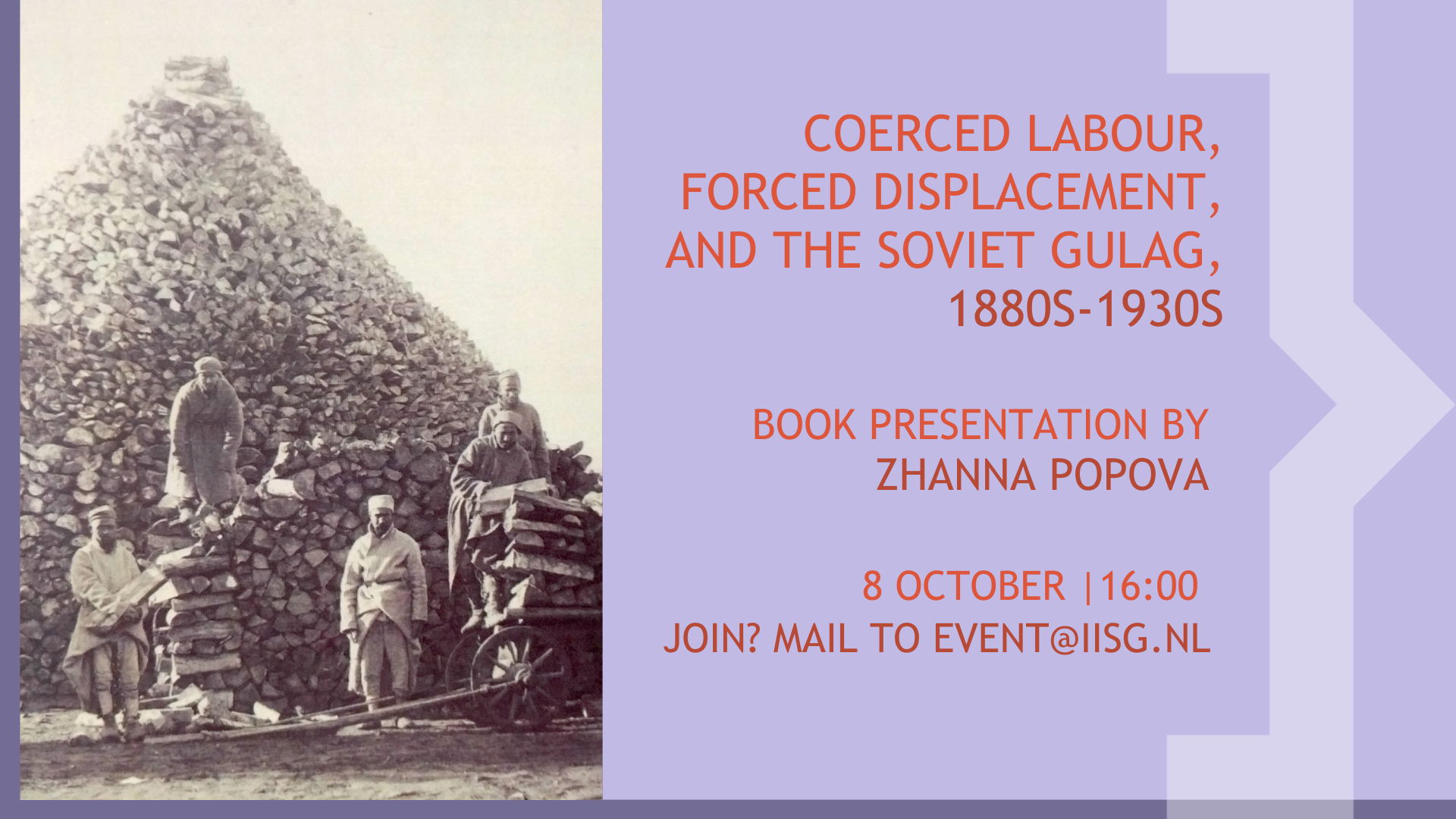Zhanna Popova - Coerced Labour, Forced Displacement, and the Soviet Gulag, 1880s-1930s
In her book Coerced Labour, Forced Displacement, and the Soviet Gulag, 1880s-1930s, Zhanna Popova examines the history of convict labor and forced displacement in Russia to shed light on the emergence of the Gulag - one of the central symbols of twentieth-century mass political violence.
This study offers an innovative long-term, social historical perspective on how the practices of forced labor and displacement were interconnected and evolved over time, becoming the foundation of the Russian penal system. Drawing on archival research in Western Siberia, Moscow, and Saint Petersburg, Popova traces the long lineages of the uses of convict labour for statist goals. Paying keen attention to the spatial dimensions of punitive practices, she discusses the wide array of punishments that combined forced labour with displacement, as well as the numerous, if often largely unsuccessful, attempts to reform the penal system. This book situates the Russian imperial penal system and the Gulag within the global history of convict labour and forced displacement, offering a nuanced understanding of long-term continuities and ruptures in their development.
Practical
Date 8 October
Time 16:00
Place IISG, Cruquiusweg 31, Amsterdam
Entrance Free entrance, but please register at event@iisg.nl
Image: hard labour convicts posing for a photo at a timber site in Western Siberia (courtesy of the Museum of Siberian Katorga and Exile in Tobolsk).
Zhanna Popova is a historian and postdoctoral researcher at Central European University (Vienna). Her research interests include social history of Russia and Eastern Europe, global history of punishment and forced migrations, and, more recently, history of women’s labour activism. She received her PhD in Social Sciences from the University of Amsterdam in 2019.



